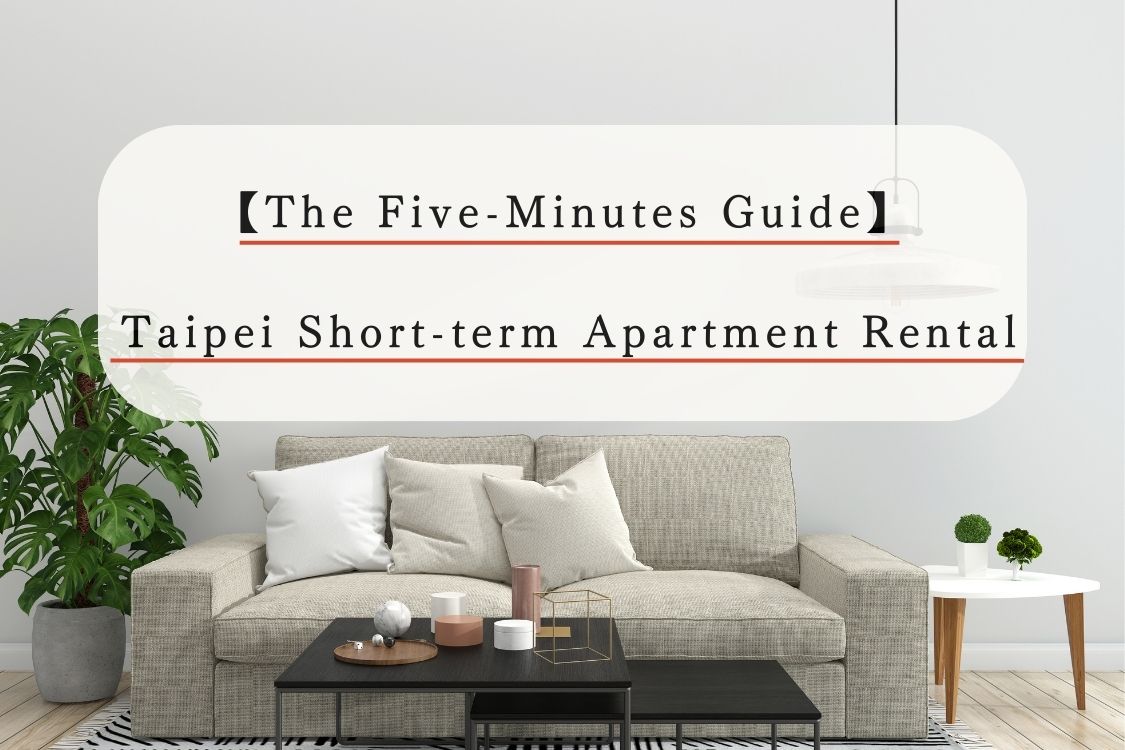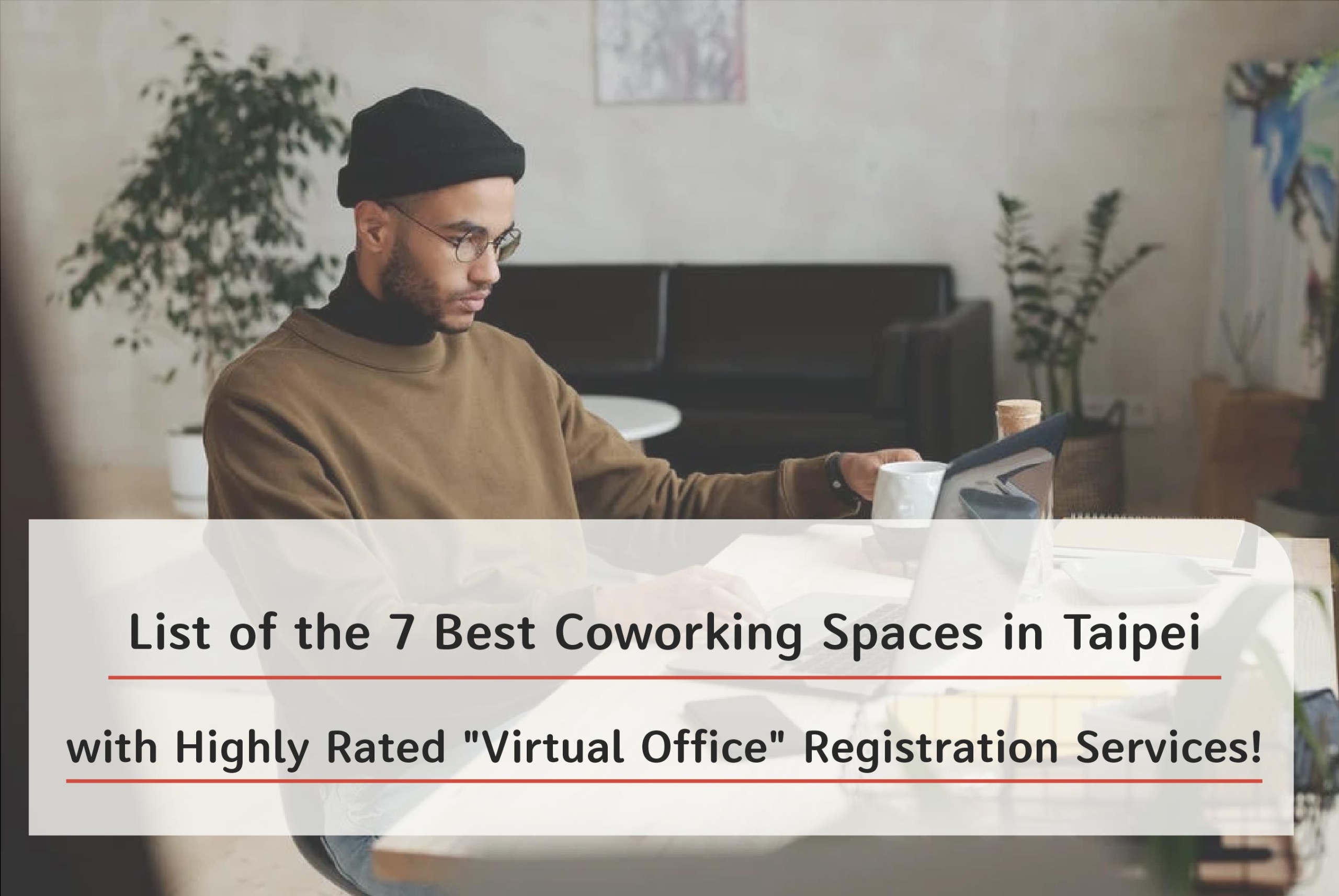Last Updated on August 1, 2025 by [email protected]
Moving to Taipei for work, study, or a new adventure? Whether you’re looking for a Taipei short term apartment rental or a longer stay, finding the right place can be harder than expected. Apartment Rental platforms are scattered, lease terms are confusing, and even in popular Facebook groups like “Facebook: Taipei Apartment Rental”, posts can feel overwhelming and inconsistent.
This guide is here to make it easier. We’ll walk you through the main types of apartment rental housing in Taipei—from studios and shared apartments to co-living spaces—and break down the pros, cons, prices, and local tips to help you avoid scams and pick the best fit for your lifestyle.
Table of Contents
ToggleChoosing the Right Apartment Rental Type in Taipei: Studio, Shared Apartment, or Co-Living?

When it comes to Taipei apartment rentals, there’s no one-size-fits-all solution. The best choice depends on your lifestyle—do you value privacy, budget, or a built-in community? Whether you’re staying a few months or a full year, understanding your options can help you avoid common apartment rental regrets.
Here’s a breakdown of the four most common types of apartment rentals in Taipei, based on real feedback shared in Facebook rental housing groups like “Facebook: Taipei Apartment Rental”:
Entire Apartment
- Layout: Living room + kitchen + multiple bedrooms
- Pros: Maximum privacy, ideal for roommates or families
- Cons: Higher rent, utilities and repairs are your responsibility, may be unfurnished
- Best for: Families, couples, or long-term expats wanting full control of their space
Studio (Self-contained unit)
- Layout: Private bathroom + small living space
- Pros: Full independence, often includes essential appliances
- Cons: Small space, may have humidity issues, quality varies a lot
- Best for: Young professionals, solo expats, or anyone needing a Taipei short term apartment rental
Private Room in a Shared Apartment
- Layout: Private bedroom + shared kitchen/bathroom
- Pros: Budget-friendly, flexible lease terms
- Cons: Limited privacy, potential roommate conflicts
- Best for: International students or travelers seeking a low-cost Taipei room apartment rental
Co-living Space
- Layout: Private room + shared common areas like kitchen, lounge
- Pros: Utilities and cleaning included, social activities, modern design
- Cons: Smaller private space, limited availability, slightly higher rent
- Best for: Digital nomads, short-term workers, or anyone who values community and convenience
According to recent apartment rental housing trend reports in Taipei, co-living spaces are growing in popularity among international students, freelancers, and contract-based professionals. If you’re new to Taiwan and want a hassle-free setup, they can be a great entry point.
What Type of Apartment Rental Suits Your Lifestyle in Taipei?

Not all apartment rentals are created equal—especially in a city as diverse as Taipei. Whether you’re here for a few months of study, starting a new job, or working remotely as a digital nomad, your Taipei apartment rental should match how you actually live day to day.
Let’s break it down by lifestyle scenarios to help you figure out what works best for you:
Long work hours & just want to crash after
- Best fit: Studio or co-living space
- Why: You’ll want minimal chores. Look for apartment rentals with cleaning services or managed utilities so you can focus on work and rest.
First time in Taipei or new to renting abroad
- Best fit: Co-living
- Why: Clear house rules, responsive management, and flexible lease terms make co-living great for newcomers who want a smooth start.
On a tight budget (students, interns, backpackers)
- Best fit: Private room in a shared apartment
- Why: It’s the most affordable option, but you’ll need to compromise on privacy. Look for listings with good management and clear rules for shared spaces.
Freelancers, remote workers, digital nomads
- Best fit: Co-living or entire apartment
- Why: Stable Wi-Fi and a calm work environment are a must. Choose units with soundproof rooms or quiet shared areas.
Families or friends living together
- Best fit: Entire apartment or multi-bedroom unit
- Why: More space, more freedom—but be sure to check about furniture, waste disposal, and utility management.
Value privacy and your own space
- Best fit: Studio or full apartment
- Why: Skip the shared kitchen and bathroom. A private unit gives you full control over your living schedule and setup.
Things to Ask Yourself Before Renting in Taipei
Before you jump into any Taipei room apartment rental or Taipei short term apartment rental, it’s worth asking yourself a few key questions:
- Am I okay sharing a kitchen or bathroom with strangers?
- Do I want cleaning services, maintenance support, or 24/7 customer service?
- Would I pay a bit more for better management, newer appliances, or peace of mind?
- Have I checked posts in Facebook: Taipei Apartment Rental or other groups to see the expats and international students’ reviews?
Pro tip: Your perfect apartment rental isn’t always the cheapest—it’s the one that fits your lifestyle without hidden headaches.
Whether you’re here for a semester, a contract gig, or just testing out life in Taiwan, the key is to choose a space that aligns with your daily rhythm—not just your budget.
Where Should You Live in Taipei? Picking the Right Area Based on Your Priorities

Unlike locals who talk about “downtown vs. outer districts,” most international students in Taipei are simply looking for a neighborhood that fits their lifestyle. Whether you’re staying short-term or planning a longer move, here’s how to choose the best area for your Taipei apartment rental.
Facebook Users Reviews: If you want convenience and zero commuting stress
Look for areas near MRT hubs like Da’an, Zhongxiao Fuxing, Xinyi Anhe, or Gongguan.
- Pros: Walkable neighborhoods, great food everywhere, close to nightlife and co-working spaces.
- Cons: Higher rent, smaller rooms, high demand.
- Best for: Young professionals, digital nomads, night owls, or anyone working/studying in central Taipei.
- Great for Taipei short term apartment rental seekers who want everything at their doorstep.
Facebook Users Reviews: If you prefer peace and more space for your money
Neighborhoods like Neihu, Wenshan, or even parts of New Taipei (e.g., Banqiao, Zhonghe) are great picks.
- Pros: Lower rent, larger apartments, access to parks, quieter surroundings.
- Cons: Longer commute (30–60 min), fewer restaurants and shops within walking distance.
- Best for: Remote workers, budget-conscious renters, people who enjoy a slower pace.
- If you’re planning a longer stay or don’t mind commuting, these areas offer great value.
What matters most: MRT access
No matter where you stay, being close to a metro station makes life 10x easier. If your apartment is more than a 15-minute walk from the nearest station, check if there are bus routes or YouBikes nearby.
Staying short-term or hate dealing with furniture?
Consider co-living spaces that offer fully furnished rooms with flexible leases. They’re available in both central and semi-central areas, perfect for international students, interns, or travelers staying 1–6 months
What Does Daily Life Actually Cost in Taipei? It’s More Than Just Rent
When searching for a Taipei apartment rental, most people focus only on the monthly rent. But here’s the truth: your real living cost depends just as much on where you live, how you commute, and how you eat.
Let’s break it down with things that actually affect your lifestyle
Facebook Users Eating Out Reviews: Expect to Spend NT$100–250 per Meal
- In central areas (like Da’an or Xinyi): meals are more expensive (NT$180–250), but you’ll have tons of cafes, bubble tea shops, and late-night snacks within walking distance.
- In quieter districts (like Wenshan or Neihu): meals are cheaper (NT$100–150), but you may have fewer options and need to walk or take a scooter for late-night food.
Love cooking? Make sure your apartment rental includes a real kitchen—many studios don’t!
Facebook Users Transportation Reviews: MRT Access = More Free Time
- Live near an MRT station: You’ll save money and time. One-way fares are usually NT$20–30 (less than US$1).
- Live farther away: You might need to transfer or take a bus, adding 30–60 minutes to your daily commute.
- Remote workers: You have more flexibility—consider choosing a bigger space further out with lower rent.
Pro tip: Always check the walking distance to the MRT on Google Maps before signing a lease.
Facebook Users Reviews: Hidden Costs to Watch For
- Utilities: Electricity is usually charged separately. In some older buildings, landlords may charge NT$5–8 per kWh (twice the standard rate).
- Management fees: Co-living spaces often include these, but in regular apartments, you may need to pay building fees separately.
- Furnishing: Some places come unfurnished—budget for basic appliances if you’re not in a serviced apartment.
Real talk from the expats & international students community
“I used to live near Xinyi for the convenience, but the rent was eating half my paycheck. I moved to Nangang and saved NT$6,000/month. It added 15 minutes to my commute, but my quality of life improved.”
– Shared in Facebook: Taipei Apartment Rental
“My first studio in Da’an looked great online, but had no kitchen and a mold problem. I later switched to a co-living space—more transparent pricing and utilities included.”
– Shared by an international student
Summary: Where you live shapes how you live in Taipei.
Instead of chasing the lowest rent, choose a neighborhood that matches your lifestyle:
- Prefer convenience and time-saving? Central areas are worth the extra rent.
- Value space, peace, or saving money? Semi-central and outer districts offer great deals if you don’t mind commuting.
In the end, the best Taipei room apartment rental is one that fits your daily routine—not just your budget.
Where Can Expats & International Students Actually Find a Place to Live in Taipei?

If you’re looking for a Taipei room apartment rental or a short-term stay, chances are you’ll struggle on local platforms like 591—they’re not built with expats and international students in mind. Most listings are in Mandarin, require local phone numbers or guarantors, and rarely provide lease transparency.
Instead, here’s a list of renter-friendly platforms and tools that actually work for international students, digital nomads, or remote workers:
| Platform / Tool | Pros | Cons | Best For |
| Facebook: Taipei Apartment Rental | Lots of direct posts from landlords or current tenants; often includes furnished, flexible listings; community interaction | High scam risk, listings aren’t verified, you must judge carefully | Budget-conscious renters with apartment rental experience; exchange students doing DIY searches |
| Home Sweet Home Share House (Co-living brand) | Fully furnished, utilities included, flexible leases, English-speaking support, modern design, no need for guarantors | Slightly higher monthly rent; fewer room choices in peak season | Digital nomads, working holiday visa holders, international interns |
| My Room Abroad | English interface, verified listings, co-living and short-term options, online booking | Some listings more expensive due to service fee | First-timers in Taipei, short stays (1–6 months), students wanting a smooth move-in |
| Reddit (r/Taiwan) & Internations | Crowd-sourced feedback, landlord reviews, expat Q&A | Not a apartment rental site—just a way to research and verify | Anyone who wants to compare feedback or get advice before signing anything |
| Airbnb (short-term only) | Easy booking, English support, all-inclusive pricing | Not suitable for long-term stays due to high cost | Travelers or newcomers waiting to find a long-term Taipei apartment rental |
| Private rental agents (English-speaking) | Can help with lease, negotiation, deposits; often bilingual | May charge agency fees; availability varies | Professionals with budget flexibility, long-term expats who want legal protection |
Extra Tip: Co-Living Spaces Are on the Rise
According to recent Facebook rental housing trend reports in Taiwan, co-living is becoming one of the most popular options among young renters. The reason? It removes the guesswork:
- Lease is transparent
- Rent includes cleaning, internet, furniture
- No need to deal with pushy landlords
- Built-in community for people new to Taipei
If you’re looking for a Taipei short term apartment rental and don’t speak Chinese, this type of apartment rental housing can save you time, stress, and confusion.
Common Apartment Rental Scams & Mistakes in Taipei (and How to Avoid Them)

Found a great deal in a Facebook: Taipei apartment rental groups? That’s exciting—but slow down. Even experienced renters have fallen for listings that looked perfect online but turned out to be full of hidden problems.
Here are the top traps to avoid when searching for a place in Taipei, especially on Facebook or lesser-known platforms:
Hidden utility costs
A landlord might advertise NT$5 per kWh for electricity—but later you find it’s NT$8 after “common area fees” and “AC surcharges.”
Ask for exact utility pricing before signing. Get it in writing.
Beautiful photos, terrible reality
The photos look like a cozy Scandinavian studio. The reality? Mold, peeling paint, and a broken fridge.
Always request a video tour—or better, view the room in person if you’re already in Taipei.
Fake co-living = a messy shared flat
Some listings call themselves “co-living” but are really just a group of strangers sharing a bathroom, with zero management or cleaning.
Stick to verified co-living brands or platforms with real customer service.
“Book now or lose it” pressure
Some agents or landlords push you to pay a deposit immediately, saying “This room is very popular, it’ll be gone tonight!”
Don’t be rushed. A good landlord gives you space to think and ask questions.
Landlords who ghost you when something breaks
You report a broken AC and get told “I’m too busy, maybe next week…”
Before renting, ask how repairs are handled and if there’s a clear process or contact person.
Watch Out for Rental Scams – Especially on Facebook
While Facebook: Taipei Apartment Rental is one of the most popular platforms for expats and international students, it’s also where most scams happen. Here’s how to protect yourself when browsing Taipei room rental posts online:
Rental traps you need to know:
- “Too good to be true” prices for central, furnished apartments
- Landlords who only provide a LINE ID and no clear photos or videos
- Requests for deposit upfront via PayPal, Wise, or bank transfer—without a contract
- No in-person or virtual tour offered (“Sorry, I’m abroad” is a common excuse)
- Posts with generic photos copied from other listings
Smart Tips Before You Commit
Here are some simple but powerful tips from seasoned Taipei renters:
- Take photos when viewing—document any damage before move-in
- Ask about water/electricity bills: Is it based on actual usage or flat rate? Is AC charged separately?
- Read your contract carefully: Check deposit terms, break clauses, and repair responsibilities
- Google the address + landlord name: Sometimes you’ll find bad reviews or scam alerts
- Observe the building: Is it clean? Are trash areas organized? Are there signs of pest problems?
- Don’t view alone: Bring a friend or colleague with you if possible
- Avoid listings that only show a LINE ID and zero detail—big red flag
“Do your homework before renting in Taipei. The right place will feel like home—the wrong one will just stress you out.”
Taipei Apartment Viewing Checklist: What to Check Before You Say Yes
Don’t just go by the photos. When you visit a Taipei room rental on Facebook: Taipei apartment rental or co-living space, make sure to check these essentials:
Light & Airflow
- Can windows open? Is there natural daylight?
- Is the room stuffy or musty during the day?
Pro tip: Visit during the day to get a sense of light and ventilation.
Noise Level
- Can you hear traffic, neighbors, or construction?
- Close the windows and sit quietly for 2 minutes—what do you hear?
Water Pressure & Heater
- Turn on the shower and sink—does the water pressure feel strong?
- Test the hot water. How long does it take to heat up?
Air Conditioning & Appliances
- Turn on the AC—does it cool properly? Is it loud?
- Are outlets enough for your devices? Do the wires look old or exposed?
Power Outlets
- Are outlets located conveniently, or bunched in a weird corner?
- Bring your phone or charger to test them.
Internet Connection
- Ask if the internet is included and how stable it is.
- Try loading a YouTube video to check speed and consistency.
Walls & Ceiling
- Look for cracks, peeling paint, mold, or stains—especially near the bathroom or windows.
- Ceiling stains can indicate water leaks.
Cleanliness & Furnishing
- Is the mattress clean? Are cabinets or drawers broken?
- Check for odors, bugs, or droppings (cockroach poop is real).
Door Locks & Security
- Do the room and main door both lock securely?
- If you’re renting just a room, make sure your door has a separate lock.
Trash Disposal
- Is there scheduled garbage pickup? How are kitchen waste and recycling handled?
- Ask about nearby collection spots if it’s not managed in-house.
Storage
- Is there enough closet or shelf space for your stuff?
- If you’re staying long-term, don’t underestimate how much storage you’ll need.
Lease & Contract
- Will the landlord provide a written lease?
- Does it explain the deposit, utilities, repairs, and break clauses?
Pro tip: Always keep a digital copy or signed photo of the agreement.
Common Areas (If Co-living or Shared)
- Are shared kitchens and bathrooms clean?
- Ask if cleaning is scheduled regularly, and if house rules exist.
Red Flags to Watch For From Facebook: Taipei Apartment Rental
- Landlord won’t let you take photos or videos
- Refuses to provide a contract or proof of payment
- Pushes you to pay immediately “or someone else will take it”
- Says it’s a co-living but turns out to be an old apartment with zero management
Final 3 Things to Always Do:
- Take photos/videos of the room—especially damages
- Test water, flush the toilet, and turn on the AC
- Ask this out loud: “Does the rent include water, electricity, internet? Are there any extra fees?”
Pro tip from Taiwan’s Ministry of the Interior: Always sign a written lease and keep a receipt or proof of payment.
FAQ: What Expats & International Students Ask Most Before Renting in Taipei From Facebook: Taipei Apartment Rental
Whether you’re new to renting in Taiwan or just unfamiliar with Taipei’s rental housing market, it’s easy to overlook small details that can lead to big issues. Here are answers to some of the most common questions expats and international students have when searching for Facebook: Taipei apartment rental.
Q1: Do I really need to view the apartment in person?
Yes. Photos are often outdated, edited, or misleading. The lighting, airflow, and noise levels can only be judged on site. A quick visit or virtual tour is highly recommended before making a decision.
Q2: How can I tell if utility rates are reasonable?
Standard electricity rates are around NT$2.6 to NT$3 per kWh. If a listing quotes NT$5 or higher, especially in shared buildings, make sure to ask for a breakdown and whether additional “common area” or “air conditioning” charges apply.
Q3: Is rent all-inclusive, or are there hidden fees?
Always ask whether the rent includes water, electricity, internet, cleaning, management, and other common charges. Some listings advertise a low monthly rent but charge high extras. Clarify the full monthly cost before signing.
Q4: Is a written lease required?
Absolutely. A written contract should outline key details: rent amount, deposit terms, repair responsibilities, move-out conditions, and more. A signed lease helps protect both parties and may be necessary for visa or subsidy applications.
Q5: Are agency fees normal in Taipei?
Yes. If you rent through an agent, it’s common to pay half to one month’s rent as a service fee. Confirm this in advance to avoid misunderstandings.
Choose a Home That Fits Your Life

Finding a place to live in Taipei isn’t just about rent or location. It’s about the kind of experience you want.
- If you value privacy and independence, a studio or entire apartment may be ideal.
- If you prefer convenience and community, co-living options offer simplicity and built-in support.
- If you’re on a tight budget, a shared apartment might be the most cost-effective solution.
Take the time to explore your options, ask the right questions, and read every contract carefully. The more informed you are, the easier it is to avoid mistakes and settle into a home that truly suits your lifestyle.
Looking for a stress-free co-living experience in Taipei?
Home Sweet Home Share House offers fully furnished rooms, flexible lease terms, and a supportive international community. Whether you’re in Taipei for work, study, or a short-term stay, our spaces are designed to make you feel at home.
Visit us: https://hshsharehouse.com
View available rooms: https://hshsharehouse.com/ourspaces
Not sure if co-living is for you? Learn more here
Read what our tenants say: https://hshsharehouse.com/lifestyle
Contact us via Line: @hshsharehouse







